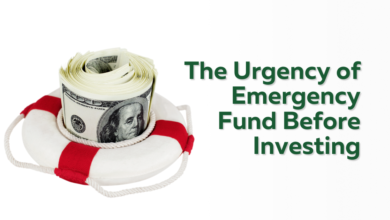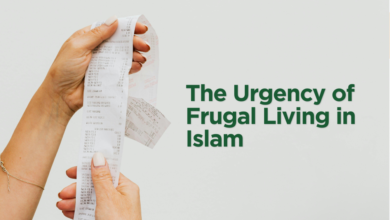Islamic Economics
-

The Important Wealth Planning in Sharia Compliant
Feel Your Salary Increase, But Your Heart Doesn’t Feel Ease? Have you ever felt that your salary has increased, bonuses have been paid, but your heart is still restless? Saving money is getting harder, bills never end, and life feels even narrower? Maybe it’s not about how much wealth we have but how we view and manage it. In Islam,…
Read More » -

Managing and Avoid Gharar and Maisir in Sharia Investment
Have you ever thought, “I have to start investing, but I’m scared too? Financial risks make me nervous.” It’s very natural. Especially if we want to invest in halal and sharia-compliant investments. We definitely don’t want to get caught up in things that are prohibited, such as gharar (excessive uncertainty) or maisir (gambling). Well, fortunately Islam has provided clear guidelines…
Read More » -

Gross Monthly Salary Allocation for Sharia Investment
“I’ve been working every month, my gross monthly salary is decent, but why haven’t I been able to start investing?” Well, if you’ve ever felt that way, you’re not alone. Many people think that as long as there is a steady gross monthly salary, it means it’s safe to invest. In fact, in Islam, managing finances before investing can be…
Read More » -

How to Save Money When Your Salary Is Tight
“How to save money when your salary is tight?” This sentence sounds very familiar to our ears. When income is limited, saving often feels like a dream. But actually, the problem is not the size of the income, but rather the way we save and the financial management that we carry out. In Islam, blessings are not always identical to…
Read More » -

4 Steps for Financial Management when Finances Not Stable
Have you ever felt like your money always runs out quickly? It’s just the beginning of the month, but your wallet is already thin. Salary comes in, then it goes out immediately. It feels like you haven’t even breathed a sigh of relief, needs keep coming. Even though it doesn’t mean that we are wasteful, it’s just that, finances are…
Read More » -

Investing for Passive Income? Here Little Known Facts
You must have heard the term passive income, right? Even many Muslims now use this term to describe income that flows without having to work hard continuously. But, what exactly does passive income mean? Is this concept really in accordance with Islam? So, what does it have to do with investment? Is investment a passive income? Or is it different?…
Read More » -

The Urgency of Emergency Fund Before Investing
In the field of personal finance, the fundamental need of setting up an emergency fund is frequently eclipsed by the appeal of investing. Even though investments have the potential to generate large returns they are not always risk-free and do not provide the immediate response needed in unexpected financial emergencies. Thus making an emergency fund a top priority is not…
Read More » -

Islamic Estate Planning: What Is That and How to Do It?
Planning an Islamic estate is a religious obligation rather than merely a financial one. Islam views prudent wealth management and proper posthumous distribution as a sign of adherence to divine law and empathy for ones family and community. According to Sahih al-Bukhari the Prophet Muhammad (ﷺ) stated: “It is the duty of a Muslim who has anything to bequeath not…
Read More » -

A Muslim’s Attitude in the Disruptive Era
Rapid changes in every area including education society the economy and technology characterize the disruptive era. These shifts require a Muslim to maintain a strong commitment to Islamic values while adopting a flexible productive mindset. Increasing Piety and Faith A Muslim must first be spiritually intelligent. Muslims need to strengthen their faith and piety in the face of digital temptations…
Read More » -

The Urgency of Frugal Living in Islam
Islam offers a strong and unmistakable call to live simply and spend prudently in a time characterized by consumerism and the never-ending quest for material wealth. Islams definition of frugal living is based on the principles of stewardship, thankfulness and moderation. The goal is to use resources sensibly and purposefully not to live in poverty or self-denial. Financial decisions are…
Read More »

